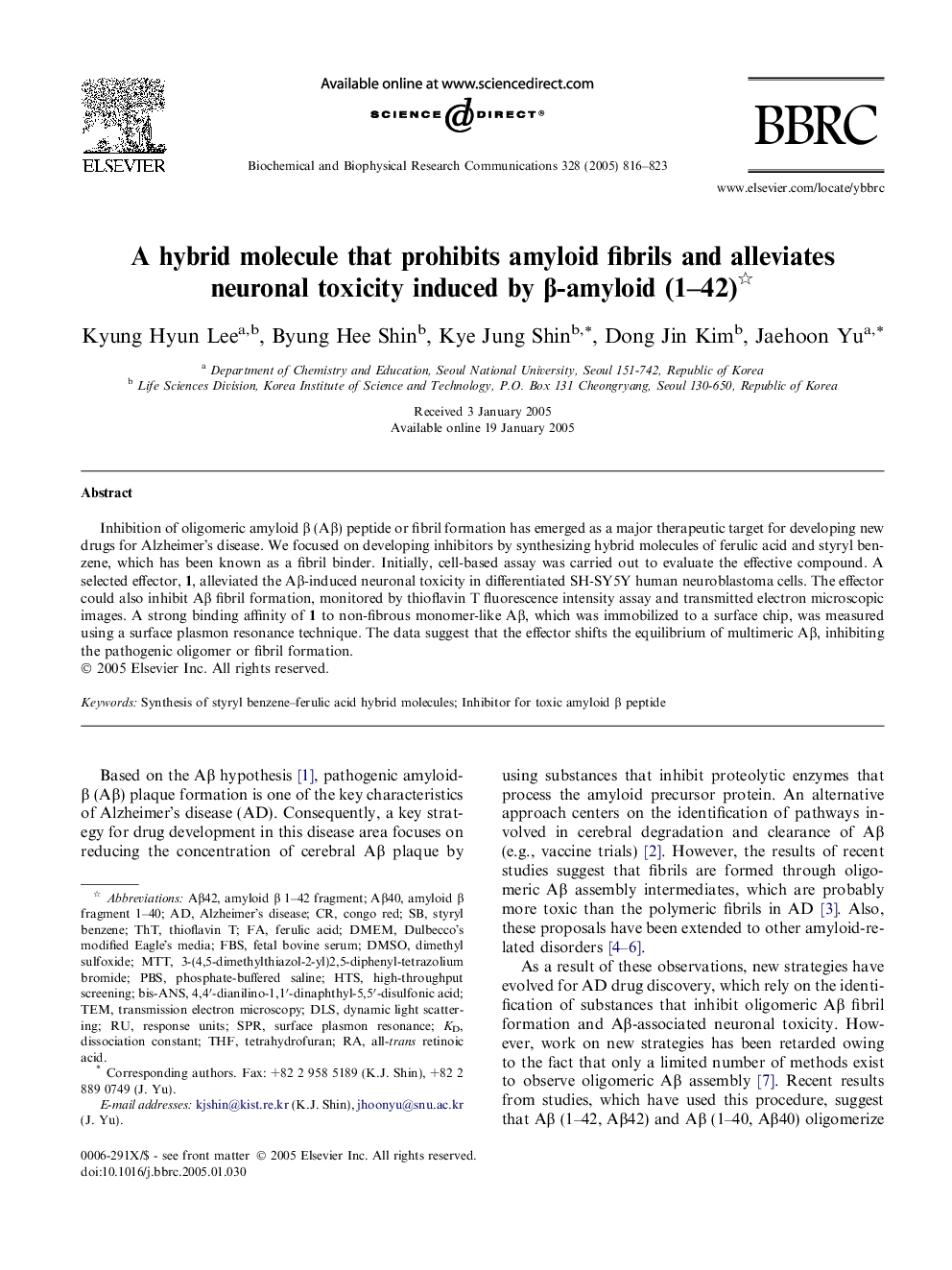| Article ID | Journal | Published Year | Pages | File Type |
|---|---|---|---|---|
| 10770556 | Biochemical and Biophysical Research Communications | 2005 | 8 Pages |
Abstract
Inhibition of oligomeric amyloid β (Aβ) peptide or fibril formation has emerged as a major therapeutic target for developing new drugs for Alzheimer's disease. We focused on developing inhibitors by synthesizing hybrid molecules of ferulic acid and styryl benzene, which has been known as a fibril binder. Initially, cell-based assay was carried out to evaluate the effective compound. A selected effector, 1, alleviated the Aβ-induced neuronal toxicity in differentiated SH-SY5Y human neuroblastoma cells. The effector could also inhibit Aβ fibril formation, monitored by thioflavin T fluorescence intensity assay and transmitted electron microscopic images. A strong binding affinity of 1 to non-fibrous monomer-like Aβ, which was immobilized to a surface chip, was measured using a surface plasmon resonance technique. The data suggest that the effector shifts the equilibrium of multimeric Aβ, inhibiting the pathogenic oligomer or fibril formation.
Related Topics
Life Sciences
Biochemistry, Genetics and Molecular Biology
Biochemistry
Authors
Kyung Hyun Lee, Byung Hee Shin, Kye Jung Shin, Dong Jin Kim, Jaehoon Yu,
